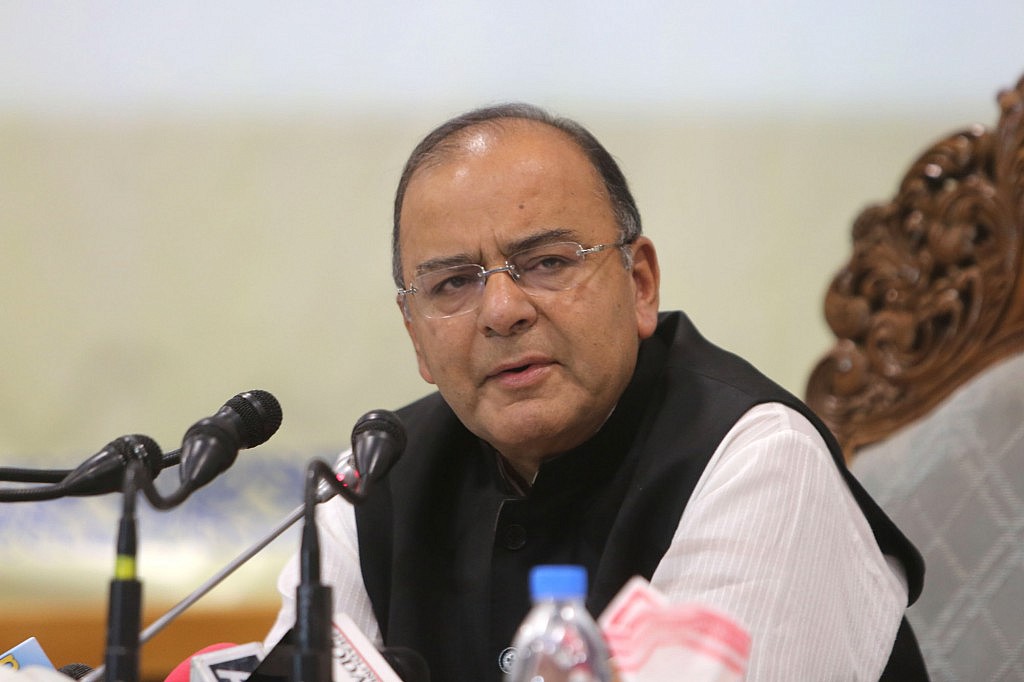The best that can be said about Budget 2017-18 is that it is not bad, which is actually a big compliment for the Narendra Modi government that has acquired considerable notoriety because of the disruption and damage its demonetization decision caused. The second best thing is that, despite the Prime Minister’s recent dalliance with socialism and poor-loving rhetoric, it has not bid adieu to fiscal prudence. Okay, there is slight waywardness—Finance Minister Arun Jaitley has pegged the fiscal deficit at 3.2 per cent instead of 3 per cent as per the plan—but that is nothing when one looks at the toxicity of the Bharatiya Janata Party’s discourse.
But the good news first. “The total allocation for infrastructure development in 2017-18 stands at Rs 396,135 crore,” the Finance Minister said in his Budget speech. He talked about synergizing the investments in Railways, roads, waterways, and civil aviation. It remains to be seen how it pans out.
Jaitley also announced the scrapping of the Foreign Investment Promotion Board (FIPB), an organization that was often seen as a roadblock. “We have, therefore, decided to abolish the FIPB in 2017-18. A roadmap for the same will be announced in the next few months. In the meantime, further liberalization of FDI [foreign direct investment] policy is under consideration and necessary announcements will be made in due course.”
The Finance Minister offered some relief to the micro, small & medium enterprises (MSMEs), which suffered a lot because of demonetization. The income tax levied on the companies with annual turnover of up to Rs 50 crore has been brought down to 25 per cent from 30 per cent. “As per the data of assessment year 2015-16, there are 6.94 lakh companies filing returns, out of which 6.67 lakh companies fall in this category. Therefore, percentage-wise, the 96 per cent companies will get the benefit of this lower taxation,” he said.
While this will make MSMEs more competitive, the revenue loss has been estimated in the region of Rs 7,200 crore.
The government has also announced several measures to improve the ease of doing business. These pertain to domestic transfer pricing, audit limits of small business entities, 10 time increase in exemption limit of book-keeping for individuals and HUFs, relief to foreign portfolio investors, advance tax filing by professionals reduced to one from four, etc.
But there is a lot that the government could and should have done, but was not bold enough to do. Personal income tax is one such area. A bad idea, increasing tax base, has eclipsed good sense. This is the reason that the exemption limit has not been increased, though slight relief has been given by halving those in the Rs 2.5 lakh-Rs 5 lakh bracket.
I have argued earlier that the BJP is the only party in the world that torments its own supporters. The salaried and trading classes are the BJP’s main constituencies. The former got short shrift when the party was in power during 1998-2004; now traders have also suffered badly because of demonetization. One would have expected a dramatic rise in the exemption limit, to Rs 5 lakh, but it did not happen.
Worse, the law-abiding high net-worth individuals have also been made to shell out more. The specious argument offered goes as the following: In India only about 1 per cent people pay income tax. Of the 37 million individuals filing tax returns, 9.9 million didn’t pay any tax as they declared their income below Rs 2.5 lakh. While 19.5 million showed income between Rs 2.5 lakh and Rs 5 lakh, 5.2 million claimed it was between Rs 5 lakh and Rs 10 lakh. Only 2.4 million accepted earning more than Rs 10 lakh. Of the 7.6 million people showing income above Rs 5 lakh, 5.6 million were salaried.
Further, only 172,000 people declared income over Rs 50 lakh, Jaitley said. “We can contrast this with the fact that in the last five years, more than 1.25 crore cars have been sold, and number of Indian citizens who flew abroad, either for business or tourism, is 2 crore in the year 2015,” he said.
The upshot: he imposed a surcharge of 10 per cent to be levied on individuals with income between Rs 50 lakh to Rs 1 crore, expecting to earn additional revenue worth Rs 2,700 crore from it.
This is perverse, for it is tantamount to punishing Peter for the crimes committed by Paul. At the heart of the problem lie the cunning of the dishonest rich and the incompetence of the authorities; instead of focusing on the root causes, the Finance Minister has chosen to squeeze more from the honest rich.
In the nutshell, Budget 2017-18 is another missed opportunity.
